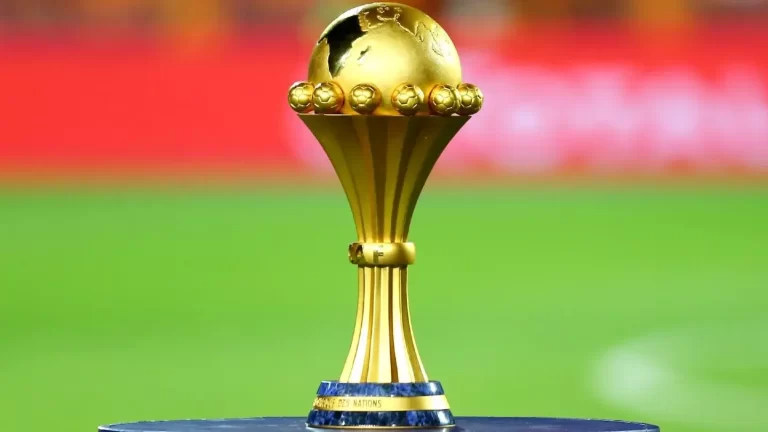Exactly seven days since the spectacular opening ceremony and commencement of the 2023 African Cup of Nations.
Into the second round of group-stage games already following the dazzling opening ceremony last weekend, and the tournament has unfurled a captivating spectacle of football prowess.
The event has become a melting pot of excitement, pulsating promise, unparalleled finesse, gripping drama, and many breathtaking matches that have left fans on the edge of their seats.
The pitch has transformed into a stage where the beautiful game unfolds in all its glory, weaving tales of skill, passion, and sheer athletic brilliance from the actors on the pitch.
We’ve witnessed stunning goals from players like Bebe of Cape Verde, Lamine Camara of Senegal, Mohammed Kudus of Ghana, and more.
There have also been surprising upsets, such as Namibia winning against Tunisia, and instances where top teams were held to a draw, like Mozambique against Egypt, Equatorial Guinea against Nigeria, and Angola against Algeria.
Amid all the excitement and drama, it’s worth noting the substantial financial commitment that has gone into making all of this enjoyable.
AFCON 2023 Prize Money
On January 4, the Confederation of African Football (CAF) announced an increase in the prize money for the winner of the 2023 Africa Cup of Nations, AFCON, by 40%.
The champion of AFCON 2023 will now receive USD 7,000,000. The runner-up gets USD 4,000,000, and each of the two semi-finalists will be awarded USD 2,500,000. The four quarter-finalists will each receive USD 1,300,000.
CAF President Dr Patrice Motsepe said;
- “CAF has made significant progress over the past two years in increasing the Prize Money of the AFCON and all its other major competitions. We have increased the Prize Money of the AFCON Winner to USD 7 000 000 which is a 40% increase from the previous AFCON Prize Money. I am confident that a portion of the Prize Money will contribute to developing football, benefit all the football stakeholders, and assist our Member Associations with their administrations.”
How Much was Shared for AFCON 2021?
AFCON 2019 Winner, Algeria, received $4.5 million, and Senegal, the runners-up, was awarded $2.5 million.
CAF decided to raise the prize amounts for the 2021 edition, Senegal received $5 million, and Egypt, the runners-up, got $2.75 million.
Additionally, there were increased cash prizes for the six other teams that reached the quarter-final stage. Teams eliminated before the quarter-finals, as in previous years, did not receive any cash from CAF.
How Much it Cost Cameroon to Stage the 2021 Tournament and its impact
The government invested more than ($885 million) in upgrading infrastructure like roads, hospitals, airports, and hotels, and developing sports facilities.
The 60,000-seat capacity, Olembé Stadium in Yaoundé, which was newly built and used for the opening ceremony cost around $280 million.
In Douala, the country’s economic capital, the Japoma Stadium, a 50,000-seater, cost around $240 million.
Additionally, new 20,000-seat stadiums were built in Bafoussam and Limbé, and the 25,000-seat stadium in Garoua was renovated.
The construction of sports infrastructure and the development of other facilities resulted in a threefold increase in revenue.
Additionally, the impact on tourism, leisure, communications, transportation, and food industries contributed to a notable 30% rise in revenue generation for Cameroon.
Estimated Cost of Ivory Coast Hosting AFCON 2023 and Its Impact
As per the BBC, The host nation is estimated to have spent around US$1 billion on improving roads, stadiums, hospitals, and other infrastructure for the tournament.
Apart from renovating existing stadiums, the country also built two new 20,000-capacity venues. The Laurent Pokou Stadium in San-Pédro in the southwest, and the Amadou Gon Coulibaly Stadium in Korhogo in the north.
The Alassane Ouattara Stadium, located just outside Abidjan, is the largest new facility, costing $260 million and accommodating 60,000 spectators under a roof.
Some venues, like Korhogo, now have new hotels, villas, and roads.
According to the International Monetary Fund (IMF), the Ivorian economy, currently ranked as Africa’s 10th largest, is expected to experience robust growth of 6.6 percent in 2024.
Tourism which contributes about 9% to the GDP of Ivory Coast will through this tournament be expected to see a significant rise.

